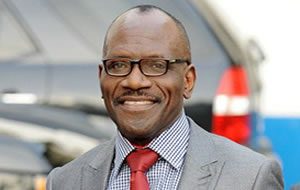Article of Faith
Breaking the Cycle -By Taiwo Odukoya


Taiwo Odukoya
See, I am doing a new thing! Now it springs up; do you not perceive it? I am making a way in the desert and streams in the wasteland. (Isaiah 49:13)
“It ought to be remembered that there is nothing more difficult to undertake, nothing more perilous to conduct, or more uncertain in its success, than to take the lead in the introduction of a new order of things. Because the innovator has for enemies all those who have done well under the old conditions and lukewarm defenders in those who may do well under the new.” Niccolo Machiavelli’s words hit right at the heart of one of the most perennial challenges that confronts leadership at every level – breaking away from the status-quo.
The imperative of continuous improvement and the tendency to resist change are one of the paradoxes of human existence. For us to become better, individually and collectively, it is necessary that we embrace new and different ways of thinking and doing; something we are inherently uncomfortable with. The ability, therefore, to successfully improve upon the status quo, is a testament to effective personal, organizational or national leadership.
The truth is, leaders are not remembered for how well they managed what they inherited, but for how they improved on it, breaking away from the past where necessary, and bringing about positive change. Abraham Lincoln is remembered as the great American president who challenged the status quo and signed the emancipation proclamation that freed millions of black slaves. Nelson Mandela is remembered not just because he spent long years in prison, but because he broke the cycle of hate and repression by exemplifying a new culture of peace and reconciliation. To change the status-quo, leaders must first change the existing culture and mindset that sustains it. It was George Bernard Shaw who said, “Progress is impossible without change, and those who cannot change their minds cannot change anything.”
There must be a corresponding adjustment in thinking for the ideas and innovations we need to make significant progress to work. And while positional leadership is important in championing this shift in paradigm, it is also something that can be done from the bottom-up. Consider this example:
Mobil had undergone a downward spiral in US production and exploration. After three rounds of laying off workers, it was virtually impossible to motivate those left. The company was in a rut. The status-quo was suffocating. Then a small group of workers, without any high profile, decided to do something about it. They developed a compelling imperative: “Become the one the others copy.” They began to exemplify a new way of thinking and behaviour with the aim of causing widespread change. Its impact was dramatic. Mobil’s operating performance soared, taking it from near the bottom of its peer group to first in less than three years.
The truth is, we can successfully mount a formidable challenge to the present culture of mediocrity and corruption that has held Nigeria back for so many years. There is little or nothing to be proud of in the status-quo and so we have incentive enough to break the cycle. As Barack Obama rightly said, “Change will not come if we wait for some other person or some other time. We are the ones we’ve been waiting for. We are the change that we seek.” So we have a responsibility not only to be the change we seek, but also to keep the government on its toes, reminding it at every turn of its promises to the people and watching to ensure it doesn’t get lost in the cycle of activities of governance.
NIGERIA HAS A GREAT FUTURE



















